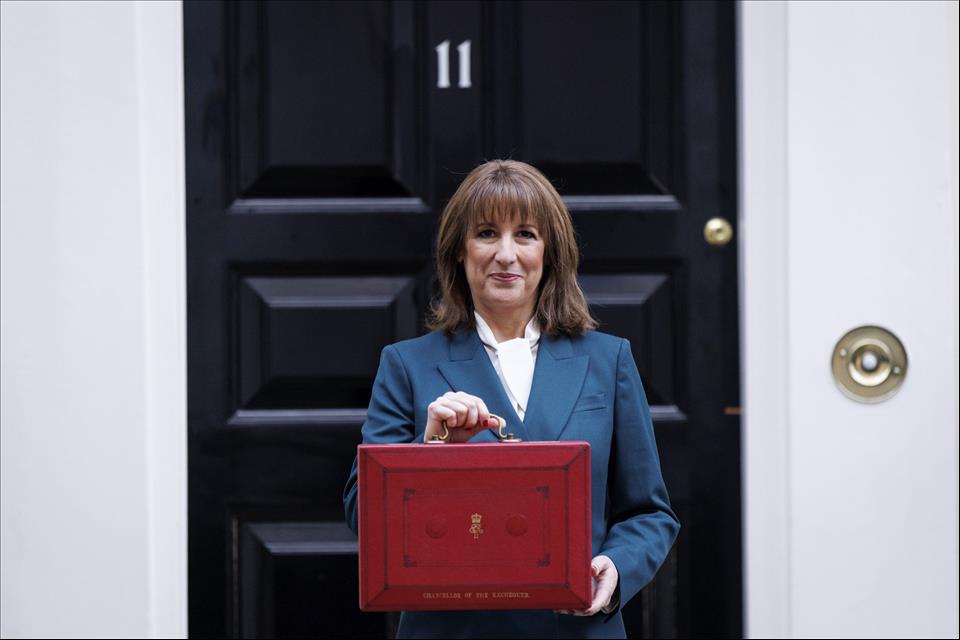
Why Rachel Reeves Chose To Disappoint Voters With Her Budget
Pleasing all three simultaneously is hardly straightforward given the UK's precarious fiscal predicament. Reeves could have attempted to appease the markets and voters with fiscal discipline that avoided significant tax rises. But if she antagonised her own MPs, her position as chancellor would quickly become untenable.
The chancellor might have produced a package welcomed by voters and Labour parliamentarians, featuring higher spending and tax giveaways. But that risked unleashing a ferocious reaction from financial markets, as former PM Liz Truss and her chancellor, Kwasi Kwarteng, found to their cost.
In the end, Reeves delivered a budget viewed favourably by Labour MPs and the markets. The danger for the government is that she did not focus sufficiently on the preferences of the electorate.
Forging any coherent strategy around this budget was challenging, to say the least. The political hype was unprecedented, amplified by leaking and briefing of proposed measures for what seemed like an age. In the background, the impression given was of chaos and instability, with the Treasury no longer in control of events.
Conservative politicians claimed that businesses and consumers were postponing investment and purchasing decisions as a result, further crippling already anaemic economic growth. That the Office for Budget Responsibility published the details of the budget before the chancellor had even got to her feet in the House of Commons hardly increased confidence.
Winning over MPsThere is little doubt that the budget was effective in winning the support of Reeves's parliamentary colleagues, as well as many trade unions and left-leaning thinktanks.
This was a traditional Labour budget, raising taxes to levels not seen in Britain since the 1970s. By the end of the decade, taxes will have risen to their highest level as a share of national income. The influential Tribune Group of“soft left” MPs not surprisingly gave the budget their warm endorsement.
The array of tax-raising measures delighted the party, notably the levies on dividends and gambling, and of course, the so-called mansion tax on the most expensive homes. The more significant measure was freezing income tax thresholds, a burden borne predominantly by“working people”.
All in all, the size of the British state has increased by 5% of national income over the last decade, a dramatic rise in historical terms.
What made this a distinctive Labour budget is that taxes have increased to raise welfare benefits by £10 billion, notably abolishing the two-child limit. Redistribution is firmly back on the agenda. Another popular measure was a further hike in the national minimum wage, warmly applauded by Labour MPs.
Reeves and Keir Starmer have decided to unashamedly embrace the politics of“tax and spend”, enabling them to draw clear dividing lines with their political opponents.
How will voters respond?On voters, the picture is much less certain. The chancellor's calculation is that“median voters” – those on middle to higher incomes who often live in marginal seats that determine the outcome of UK elections – care more about avoiding a further round of public sector austerity than rising personal taxation. This budget will test that political assumption.
At the last election, Labour promised to pay for public services by growing the economy rather than resorting to higher taxes.
But in a fractious environment where the public finances have deteriorated significantly and there is an appetite to impose new levies on wealth, Reeves was compelled to raise taxes to retain the support of her colleagues. Without this, she ran the risk of imperilling her own cabinet position if dissatisfied Labour MPs demanded change at the Treasury.
The obvious danger is that too many voters disagree with her choices. As the Institute for Fiscal Studies highlighted, the prospects for average living standards in this decade appear“truly dismal”, a less than ideal backdrop for raising taxes, even by stealth.
According to the latest British Social Attitudes Survey, a shift is underway in views of taxation and government spending:“The proportion of people who support reducing tax and public spending has reached its highest level on record (15%), while support for increasing tax and spending is at its lowest point in a decade (40%).”
Although there is strong backing for extra spending on the NHS, increasing welfare benefits are not a priority for many voters. For Labour MPs, however, it is a necessity – eradicating poverty is held to be a core belief that goes back to the party's origins.
Reeves should be wary of what political scientists call a “thermostatic effect”: attitudes to taxation and public expenditure among voters respond to government action and follow a broadly cyclical pattern. As the state gets larger, support for increasing taxation and spending often declines.
Ministers can try to steer public opinion by making a political argument, convincing voters that removing the two-child limit is necessary to reduce child poverty, extending opportunity for the next generation. Yet, the chancellor will be keenly aware that the government has, in all probability, reached the limit of how far it can increase the size of the state.
Overlooking the concerns of voters is an error few governments can afford to make. Ultimately, Reeves decided it was worth taking the risk of not putting the electorate's concerns front and centre, no doubt hoping that only 18 months into this parliament, there is time to recover. Yet many of the proposed tax rises do not take effect until 2028-29 – perilously close to when the next election must take place.

Legal Disclaimer:
MENAFN provides the
information “as is” without warranty of any kind. We do not accept
any responsibility or liability for the accuracy, content, images,
videos, licenses, completeness, legality, or reliability of the information
contained in this article. If you have any complaints or copyright
issues related to this article, kindly contact the provider above.


















Comments
No comment